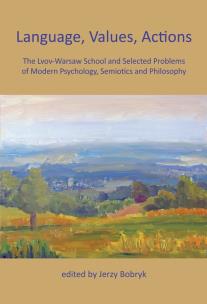- Regulamin
- Koszty dostawy
- Kontakt
- Dziś w ofercie 234 973 produkty
KSIĄŻKI
- Albumy
- Beletrystyka
- Biografie
- Dla dzieci i młodzieży
- Edukacja
- Ekonomia i biznes
- Ezoteryka
- Historia
- Informatyka
- Kalendarze
- Komiksy
- Kryminał i sensacja
- Kultura i sztuka
- Literatura faktu
- Literatura kobieca
- Literatura piękna
- Medycyna
- Nauka języków obcych
- Nauki humanistyczne
- Nauki przyrodnicze
- Nauki ścisłe
- Podręczniki
- Poradniki
- Prawo i administracja
- Przewodniki i podróże
- Psychologia
- Religia
- Sport
- Technika
- Zdrowie i uroda
ZABAWKI
- Artykuły dla niemowląt
- Bączki
- Bujaki i skoczki
- Ciągnij / pchaj
- Dla niemowlaka
- Grzechotki i gryzaki
- Karuzele i pozytywki
- Maty i centra zabaw
- Projektory i lampki
- Sortery i piramidki
- Zabawki
- Edukacyjne i kreatywne
- Figurki
- Klocki
- Lalki
- Pojazdy
- Pluszaki i maskotki
- Sport i rekreacja
- Zabawa w dom
- Zabawki drewniane
- Puzzle
- Do 200 elementów
- 201-500 elementów
- 501-1000 elementów
- Ponad 1000 elementów
- Puzzle 3D
ART. PAP
- Artykuły biurowe
- Artykuły piśmiennicze
- Bloczki i kartki samoprzylepne
- Dziurkacze
- Kalkulatory
- Nożyczki i nożyki
- Skoroszyty
- Teczki
- Wizytowniki
- Zszywacze
- Artykuły szkolne
- Akcesoria szkolne
- Modelowanie
- Notatniki i zeszyty
- Piórniki
- Plecaki i torby
- Pojemniki na śniadanie
- Pomoce naukowe
- Przybory matematyczne
- Przybory rysunkowe
- Upominki i gadżety
- Akcesoria do książek
- Artykuły balowe
- Breloki i zawieszki
- Drobiazgi, różności
- Kubki
- Oferta Świąteczna
- Papeteria, kartki i naklejki
- Skarpetki Many Mornings
- Upominki
GRY
MULTIMEDIA
- Audiobooki
- Beletrystyka
- Biografie i wspomnienia
- Dla dzieci i młodzieży
- Fantastyka
- Filozofia i religia
- Historia
- Literatura faktu i reportaż
- Poradniki
- Sensacja i kryminał
- Filmy DVD/BD
- Animowane
- Biograficzne
- Fantasy
- Horrory
- Komedie
- Romanse
- Science Fiction
- Sensacyjne / kino akcji
- Thrillery
- Muzyka CD
- Alternatywna
- Blues
- Dla dzieci
- Jazz
- Klasyczna
- Piosenka aktorska i poetycka
- Pop
- Rock
- Świąteczna i kolędy
- Akcesoria GSM
- Głośniki
- Kable i adaptery
- Klawiatury
- Myszy
- Słuchawki
PROMOCJE
ZDROWIE
LEGO

Language, Values, Actions
ISBN:
9788393958955
EAN:
9788393958955
oprawa:
Miękka ze skrzydełkami
podtytuł:
The Lvov-Warsaw School and Selected Problems of Modern Psychology, Semiotics and Philosophy
format:
23.6x16.5
język:
angielski
liczba stron:
216
rok wydania:
2016
(0) Sprawdź recenzje
Opis produktu
Zasady bezpieczeństwa
Ostatnie dziesięciolecia dwudziestego wieku i początek wieku obecnego można scharakteryzować jako okres popularności terminów zawierających morfem „post”. Mamy więc „poststrukturalizm”, „postmodernizm”, „posthumanizm” itd. Tak utworzone terminy denotują najczęściej poglądy głoszące, iż właśnie wchodzimy, lub weszliśmy, w okres, w którym wyczerpały się możliwości jakiegoś sposobu opisu zjawisk, na przykład możliwości „modernizmu”, „humanizmu”, „strukturalizmu”, należy zatem poszukiwać radykalnie innego sposobu (według pewnych interpretacji) lub pogodzić się z klęską intelektu ludzkiego (według innych).
Autorzy tekstów zebranych w niniejszym tomie w najrozmaitszy sposób wyrażają nadzieję, że na intelektualną kapitulację mamy jeszcze czas. Zanim do niej dojdzie warto, rozwiązując różne problemy współczesnej humanistyki, w pełni wypróbować możliwości, jakie daje nam aparatura pojęciowa szkoły lwowsko-warszawskiej.
The last decades of the 20th century and the beginning of the present century can be characterized as a period of popularity of terms containing the morpheme “post”. We have thus “post-structuralism”, “post-modernism”, “post-humanism”, etc. Terms that are formed in this way most often denote views that we are just entering or have entered into a period in which the possible ways of describing phenomena have been exhausted, e.g. the possibilities of “modernism”, “humanism”, and “structuralism; we should therefore look for a radically different way (according to certain interpretations) or come to terms with the defeat of human intellect (according to others).
The authors of the texts gathered in this volume express in numerous ways the hope that we still have time till intellectual capitulation. Before it occurs it is worthwhile to solve the various problems of contemporary humanities and to fully test the possibilities offered by the conceptual apparatus of the Lvov-Warsaw School.
CENA:
20,77
zł
Cena detaliczna:
24,50 zł
15%
rabatu
Najniższa cena z ostatnich 30 dni: 20,82 zł
Produkt niedostępny
Uwaga!!!
Ten produkt jest zapowiedzią. Realizacja Twojego zamówienia ulegnie przez to wydłużeniu do czasu premiery tej pozycji. Czy chcesz dodać ten produkt do koszyka?


Wybierz wariant produktu
